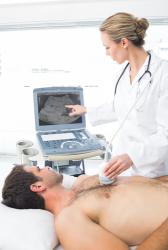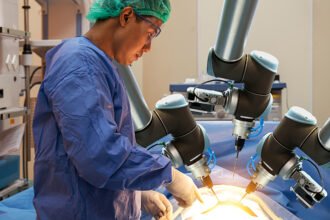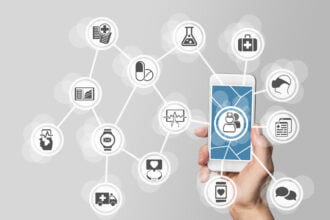 David Lee Scher, M.D., is a cardiac electrophysiologist and a pioneer in remote patient monitoring, adopting such devices to his medical practice more than 13 years ago.
David Lee Scher, M.D., is a cardiac electrophysiologist and a pioneer in remote patient monitoring, adopting such devices to his medical practice more than 13 years ago.
 David Lee Scher, M.D., is a cardiac electrophysiologist and a pioneer in remote patient monitoring, adopting such devices to his medical practice more than 13 years ago. He also is the author of the well-respected blog, The Digital Health Corner, which addresses emerging issues regarding the adoption of digital health technologies. In Part One of my talk with David, who is the newest Popper and Co. team member, we discussed how technology can impact today’s healthcare environment, especially healthcare efficiency. In Part Two, we discuss challenges in development and adoption of these technologies.
David Lee Scher, M.D., is a cardiac electrophysiologist and a pioneer in remote patient monitoring, adopting such devices to his medical practice more than 13 years ago. He also is the author of the well-respected blog, The Digital Health Corner, which addresses emerging issues regarding the adoption of digital health technologies. In Part One of my talk with David, who is the newest Popper and Co. team member, we discussed how technology can impact today’s healthcare environment, especially healthcare efficiency. In Part Two, we discuss challenges in development and adoption of these technologies.
Why have physicians resisted a lot of healthcare technologies?
Physicians are scientists. The first thing they want is evidence that something works. Few digital technologies have demonstrated benefit with regards to improving patient outcomes. But physicians still have a huge bad taste in their mouths from the original introduction of electronic health records, which represents the face of digital technology to them. Technology has to appeal to them in the way they practice medicine, addressing problems they face daily. It needs to solve whether they deal with communications, scheduling, medical adherence, or other issues in clinical management. Finally, many physicians are ideologically distant from participatory medicine. They don’t yet give the patient extreme importance when it comes to participating in their care. Part of this lies in the fact that they are not taking advantage of some digital tools available now which can improve patient self-management and involve caregivers to a larger extent.
What kinds of technologies will have the most promise?
The biggest promise comes from technologies that actually are going to be used! Adherence to digital tools is as much a problem as that related to adherence to medication schedules or regular usage of other patient aids. The challenge lies in developing tools with behavioral considerations including incentives, gaming, and social. A new technology needs to be something that people want to keep using. It’s necessary today to have a social aspect of patient-facing technology in order for it to be successful. This provides both support and incentive to maintain contact with the technology. Apps that are proven to benefit patients are more apt to be adopted because they meet the shared goal of both providers and patients, that of better health. Successful technologies are provisions of education, involve caregivers, have a social tie-in, provide only filtered and actionable trending data to providers, and are proven.
How is a shift of care to patient-centered medical homes (PCMH) affecting technology development?
It’s important to correct one misconception: the PCMH isn’t the patient’s home. It’s different from patient-centric care. The PCMH was developed to better facilitate communications among physicians. It has been shown to improve outcomes, but has less to do with patients more fully participating in their own care. Technology needs to put the patient and the caregiver in the middle, not the primary care physician. Attention needs to focus on the caregiver and patient at the same time. A remote monitor that sends a message via a physician-determined algorithm to change medication or diet should send that message to the caregiver as well.
What can technology companies do to help adoption?
Involve patients and clinicians in the development process – Better companies bring people on board early, and have smaller beta testing as part of the development process. Many healthcare developers don’t take into account user experience, which is extremely important. Right now, there’s a recognition of the importance of involving behaviorists in the development of patient-facing technologies.
healthcare technology / shutterstock







